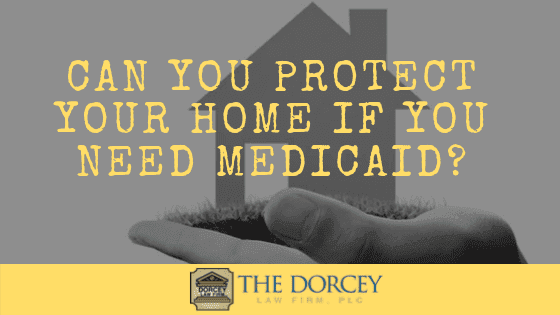Can You Protect Your Home If You Need Medicaid? Anyone who owns a home, whether a magnificent mansion or a modest ranch, worries about the possibility of losing the home because of long-term care. How can they keep the home for their spouse or even for their family, if they need to apply to Medicaid for long-term nursing care costs?
 The problem, reports The Mercury in a recent article “Protecting your house and Medicaid” is often the strategies that people come up with on their own. They usually don’t work.
The problem, reports The Mercury in a recent article “Protecting your house and Medicaid” is often the strategies that people come up with on their own. They usually don’t work.
The first thought of someone who is confronted with the need to qualify for Medicaid is to immediately transfer ownership of the family home to another person. The idea is to take the home out of their countable assets. But unless the person who receives the house is an adult child, that transfer only leads to problems.
Medicaid’s basic premise is that if you can afford to pay for your own care, you should. Transfer of a home, let’s say one with a value of $400,000, means that a $400,000 gift has been given to someone. There is a five-year lookback period. Any assets given away or transferred in that five-year period means that you had the asset under your control. Medicaid will not pay for your care in that case.
There are some exceptions to the gifting rules, but this is not something to be navigated without the help of an experienced elder law estate planning attorney. Here are the exceptions:
Your spouse. It’s understood that your spouse needs a place to live, and a transfer of the home to your spouse does not result in penalties under Medicaid rules. This usually means transfer from title as joint tenants with rights of survivorship or tenants by the entireties to the healthier wife or husband. It is also understood that a transfer to your spouse at home is not a disqualifying transfer. This is a common practice and part of Medicaid planning.
A disabled child. A parent may transfer a house to their disabled child on the theory that it is needed for self-support. It is not necessary for a child to lose a home, because a parent will be on Medicaid. This is a common mistake, and completely avoidable. Talk with an elder law attorney to learn more.
If a child is a caretaker. An adult child who moves in with the parents for a period of at least two years to care for them so they could stay at home and avoid going to a nursing home, or if the child has lived with their parents for longer than that and they need this care at home, under federal law the home can be transferred to the child without penalty and the parent can go to a nursing home and receive care under Medicaid. This is another very common mistake that causes adult children to be left without a home.
For a person who is single or a widow or widower who will never move home after moving into a Medicaid certified nursing home, the house may be sold, and planning can be done with the proceeds of the sale. Paying bills to maintain a vacant home for no reason and having the government take the home as a creditor through the estate recovery program does not make sense. An elder lawyer estate planning attorney can help navigate this complex and often overwhelming process.
It is our goal to provide our clients with the highest level of legal services in the areas of Last Will and Testaments, Living Trust, Irrevocable Trusts, Estate Planning, Asset Protection, and complete Business Planning. If you or someone you know needs information on Florida estate planning, please contact us today at (239) 309-2870 to schedule your free consultation.
